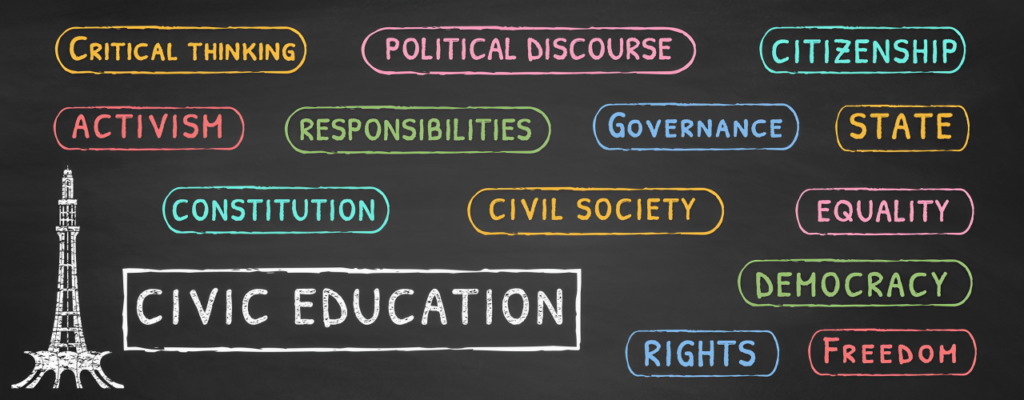
Civic education plays a pivotal role in shaping the future of a nation by empowering its youth to become informed, responsible, and engaged citizens. It is more than just understanding the structure of government; it’s about equipping young people with the knowledge and skills to actively participate in democratic processes and community development. For the “Youth Empowerment For Engaged Citizenship” project by Shehri-CBE, the emphasis on civic education is an essential step toward fostering a generation that values accountability, inclusion, and progress.
What Is Civic Education?
Civic education is a field of study that focuses on the rights, responsibilities, and roles of citizens in a democratic society. It provides an understanding of:
- Democratic principles: Freedom, equality, and justice.
- Civic duties: Voting, obeying laws, and participating in community service.
- Government structure: How local, national, and international systems operate.
- Critical thinking: Analyzing issues, forming opinions, and advocating for change.
By learning these concepts, youth gain the tools to engage meaningfully in governance and community initiatives.
The Importance of Civic Education for Youth
- Promotes Active Participation
Civic education encourages youth to actively engage in society. From voting in elections to volunteering for local causes, an understanding of their civic roles fosters a sense of duty and ownership in shaping their communities. - Builds Awareness of Rights
Many young people are unaware of their constitutional rights and how to exercise them. Civic education bridges this gap by informing them about fundamental rights like freedom of speech, assembly, and access to education and justice. - Develops Critical Thinking
In a world flooded with information, the ability to critically evaluate issues is vital. Civic education teaches youth to distinguish facts from misinformation, empowering them to make informed decisions and contribute positively to discussions on societal challenges. - Strengthens Leadership Skills
Civic education nurtures leadership qualities by encouraging youth to take initiative in addressing community issues. Whether organizing campaigns or leading awareness drives, these experiences build confidence and leadership capabilities.
Integrating Civic Education into Everyday Life
1. Community Service Projects
Encourage youth to participate in local initiatives such as clean-up drives, food distribution programs, or literacy campaigns. These activities foster a sense of responsibility and teamwork.
2. Workshops and Seminars
Interactive sessions on topics like voting processes, human rights, and climate action can spark interest in civic responsibilities. Inviting experts and activists to share their experiences can inspire youth to take action.
3. Digital Engagement
Social media and online platforms can be leveraged to educate and engage. Youth can use these tools to spread awareness, organize virtual campaigns, and connect with like-minded individuals globally.
4. School and College Programs
Incorporating civic education into academic curricula ensures a systematic approach to learning. Schools and colleges can host debates, essay competitions, and mock elections to make learning engaging and practical.
Real-Life Examples of Youth Impact
- Arfa Karim Randhawa: The youngest Microsoft Certified Professional who inspired millions with her brilliance and passion for technology. Her achievements showcased how Pakistani youth can excel on global platforms.
- Aitzaz Hasan: A young hero who sacrificed his life to prevent a suicide bomber from attacking his school, setting an example of courage and selflessness.
- Muniba Mazari: Known as the “Iron Lady of Pakistan,” her advocacy for women’s empowerment and rights has been instrumental in inspiring youth to break societal barriers and pursue meaningful goals..
Conclusion
Civic education is a cornerstone of a thriving democracy and an empowered society. For youth, it is a gateway to becoming proactive, informed, and influential citizens. Projects like “Youth Empowerment For Engaged Citizenship” by Shehri-CBE are vital in fostering this growth. By promoting civic education, we invest in a future where young people lead with knowledge, empathy, and purpose.
Let us commit to making civic education accessible and engaging for every young individual. The change begins with empowering our youth today, for a brighter tomorrow.



Great article! Civic Responsibility is an interesting topic, and I found the explanation very clear. If you’re interested, you can also check this: https://humanitysdilemma2.blogspot.com/2025/02/are-construction-workers-delivery_21.html